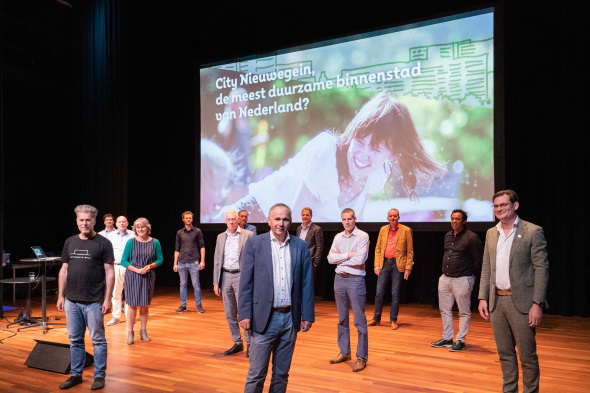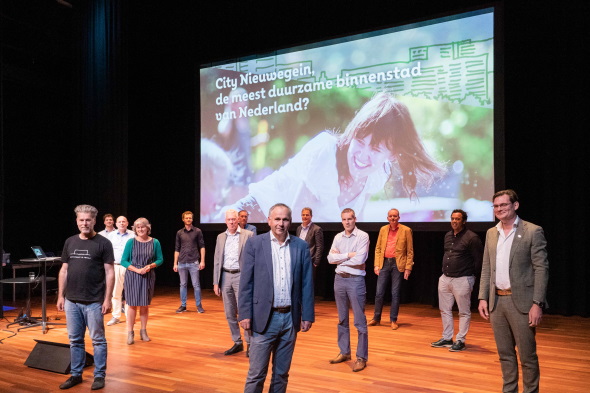On 17 September, the governance kick-off meeting for TKI Circular Water in the City took place in Nieuwegein. The ‘Water Circular Nieuwegein City’ project, under the leadership of KWR, will investigate how the precipitation surpluses in City West can be used in periods of water shortage. This is important as a means of ensuring that City West is well organised for liveability and prepared for the future.
The parties involved are the relevant stakeholders: the Municipality of Nieuwegein, De Stichtse Rijnlanden Water Authority, the Province of Utrecht, project developers Fresh Real Estate, Bridges Real Estate and Mitros, and water technology companies Desah, Rieland, Field Factors and Drain Products.
Prepared for the future
The kick-off meeting was opened by Marieke Schouten, Nieuwegein’s city councillor for sustainability. City, the downtown area of Nieuwegein, will undergo further renewal in the years ahead – and the aspirations are high. The municipality aims to transform City into the most sustainable downtown area in the Netherlands. Schouten: ‘Climate change will on the one hand lead to more frequent periods of heavy downpours and, on the other, to drought periods with high temperatures, particularly in the summer. We want to be prepared for this through the new organisation of City West. This means more green and a different approach to water. The Water Circular research will help us by exploring the possibilities for handling water differently.’
Constantijn Jansen op de Haar, ‘Hoogheemraad’ of the Stichtse Rijnlanden Water Authority, noted that the development and implementation of more decentralised water treatment concepts in the built-up area is also very important for the Water Authority – and is relevant in relation to developments at the central WWTP.
Temporary storage
Marcel Paalman, a KWR researcher, explained the substantive elements of the project, which is being co-financed by the Dutch Top Sector policy [Water Top Sector (TKI)]: ‘In urban areas the water is discharged too quickly through the sewer system, which means that in dry periods there is too little water. The idea is to temporarily store the surplus water produced by (peak) downpours on roofs and under the street, after which it is infiltrated into a sand aquifer in the deep subsurface. In drought periods this water again becomes available for urban green spaces and green roofs. In this way it makes an important contribution to the quality of the living environment.’
Shower-water reuse
Research is also being conducted into how to do more with drinking water. Of the 120 litres of drinking water every person consumes daily, about 50 litres is used for showering. Once used, this water is still of relatively good quality, and it could be reused after undergoing a natural treatment process. This would require separating the shower water from the rest of the water. People take a shower almost every day. That means that water is available in dry periods as well, for example, to irrigate a city’s green spaces.
In the Circular Water project, KWR is applying the knowledge institute’s expertise to achieve the City Nieuwegein manifold ambitions in the area of water.

Participants of the Circular Water kick-off meeting.
